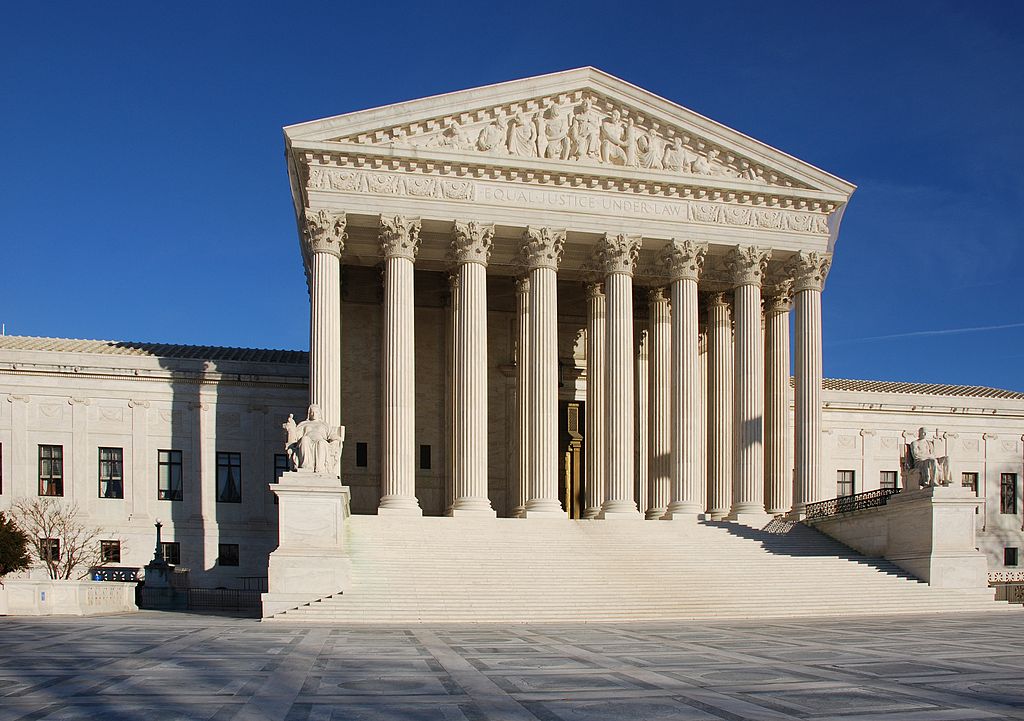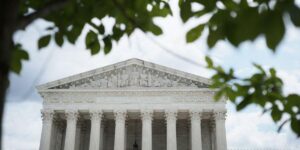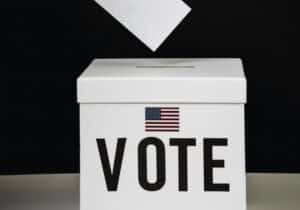The U.S. Supreme Court upheld Arizona’s ban on ballot harvesting and the state’s requirement of in-precinct voting against a Voting Rights Act challenge in Brnovich v. Democratic National Committee Thursday.
In the 6-3 decision authored by Justice Alito, the Supreme Court overturned the Ninth Circuit Court of Appeals en banc decision holding both provisions of Arizona law violated Section 2 of the Voting Rights Act, and in doing so the high court added much-needed clarity to Section 2 claims.
When originally passed in 1965, Section 2 of the Voting Rights Act prohibited a “standard, practice, or procedure” that “imposed or applied. . . to deny or abridge the right of any citizen of the United States to vote on account of race or color.” But following the Supreme Court’s decision in City of Mobile v. Bolden in 1980, that Section 2 only bars “the purposefully discriminatory denial or abridgement by the government of the freedom to vote” on account of race or color, Congress amended Section 2 to prohibit practices that “results in” the “denial or abridgement” of the right to vote.
Congress later added Section 2(b) to the Voting Rights Act and that provision detailed how violations of Section 2 must be shown. As the Supreme Court explained, “it requires consideration of ‘the totality of circumstances’ in each case and demands proof that ‘the political processes leading to nomination or election in the State or political subdivision are not equally open to participation’ by members of a protected class ‘in that its members have less opportunity than other members of the electorate to participate in the political process and to elect representatives of their choice.’”
Following the amendments to the Voting Rights Act, Section 2 had been applied by the courts mostly in the context of “voting dilution claims,” such as in redistricting decisions. In recent years, however, as Justice Alito explained, there have been a proliferation of Section 2 challenges in the lower courts to “generally applicable time, place, or manner voting rules.” But today’s decision in Brnovich represents the first time the Supreme Court has spoken on the question.
In Brnovich, the Court began by stressing that the majority believed “it prudent to make clear at the beginning” that it was declining to announce a test to govern all Voting Rights Section 2 claims, involving time, place, and manner provisions for voting. Instead, the court identified “certain guidepost” governing the analysis.
The majority then focused on Section 2(b)’s statutory language, stressing that the process must be “equally open” and “open” means “without restrictions as to who may participate.” Continuing with the relevant statutory language, the court noted that “equal opportunity” is not a separate requirement but “helps to explain the meaning of equal openness,” with “openness” remaining the keystone.
Next, the Court focused on the “totality of circumstances” language and notes several important circumstances relevant to this inquiry, including: the size of the burden; the degree to which the voting rule departed from the standard in 1982 when Congress amended Section 2; the size of the disparity of the rule on minorities; the opportunities provided by the state’s entire voting system; and the strength of the state’s interests in the law.
In addition to laying out what constituted appropriate consideration, the Court noted that many factors considered in voting-dilution cases were inapplicable to time, place, and manner challenges. And the majority expressly rejected “the disparate-impact model employed in Title VII and Fair Housing Act cases,” which consider if the rule is necessary and the only way to achieve the desired goal.
After detailing the above “guideposts,” the majority applied the consideration to the two challenged provisions. The majority concluded that Arizona’s “out-of-precinct” law, which had been in effect since at least 1970, did not violate Section 2 of the Voting Rights Act. That law requires voters “who choose to vote in person on Election Day” to “cast their ballots in their assigned precinct,” and only those votes cast in the correct precinct are counted.”
“Having to identify one’s own polling place and then travel there to vote does not exceed the ‘usual burdens of voting’” the Court explained. Further, “the State makes accurate precinct information available to all voters,” and has “made extensive efforts to reduce their impact on the number of valid votes ultimately cast.” And any disparity based on race is minor, the Court noted, in upholding the provision.
Likewise, the Court upheld Arizona’s prohibition on ballot harvesting. Although Arizona law had long provided that only the elector may possess his or her unvoted ballot, in 2016, the state legislature passed House Bill 2023 which provided that only election officials, mail carriers, family or household members or caregivers could “knowingly collect another person’s voted early ballot.”
Arizona argued that “prohibiting unlimited third-party ballot harvesting is a commonsense means of protecting the secret ballot, and preventing undue influence, voter fraud, ballot tampering, and voter intimidation,” noting that the bipartisan Carter-Baker Commission recommended similar protections in its report on election reforms.
The Supreme Court again concluded “HB 2023 likewise passes muster under the results test of Section 2,” because Arizonans can submit the ballot by going to a mailbox, post office, early ballot drop box, or presenting it to an election official’s office, and voters may also ask family and household members and caregivers to do the same. “Making any of these trips—much like traveling to an assigned polling place—falls squarely within the heartland of the ‘usual burdens of voting,’” the Court explained in upholding the law.
Also of note, the Court rejected the review there must be evidence of fraud for a state to pass legislation to prevent fraud: “As the Carter-Baker Commission recognized, third-party ballot collection can lead to pressure and intimidate. And it should go without saying that a State may take action to prevent election fraud without waiting for it to occur and be detected within its own borders.”
Finally, the Court held that the Ninth Circuit erred in holding that HB 2023 “was enacted with a discriminatory purpose.” Here, the majority stressed that partisan motives are not the same as racial motives. Similarly, Justice Alito criticized attempts made to paint the entire legislature as racist based on a “racially-tinged” video and unfounded claims of voter fraud made by one politician, writing: “Under our form of government, legislators have a duty to exercise their judgment and to represent their constituents. It is insulting to suggest that they are mere dupes or tools.”
While joining the majority opinion, Justice Gorsuch filed a concurring opinion, joined by Justice Thomas. In his concurrence, Justice Gorsuch “flagged” an issue not decided by the Court, namely whether the Voting Rights Act allows private organizations (such as the Democratic National Committee in this case,” to sue under Section 2. However, because the issue was not raised, Justice Gorsuch stressed, the Court did not address that open issue.
Justice Kagan filed a dissent, which Justices Breyer and Sotomayor joined. That dissent focused almost entirely on the history necessitating the Voting Rights Act and ignored the question before the court: what Section 2 means.
The majority in Brnovich answered that question, even without providing a firm standard. And while the Supreme Court’s decision in Brnovich v. Democratic National Committee addressed only Arizona’s legislation, the opinion represents a victory for state legislatures seeking to ensure voting integrity and establishes that no, these laws are not Jim Crow 2.0.



